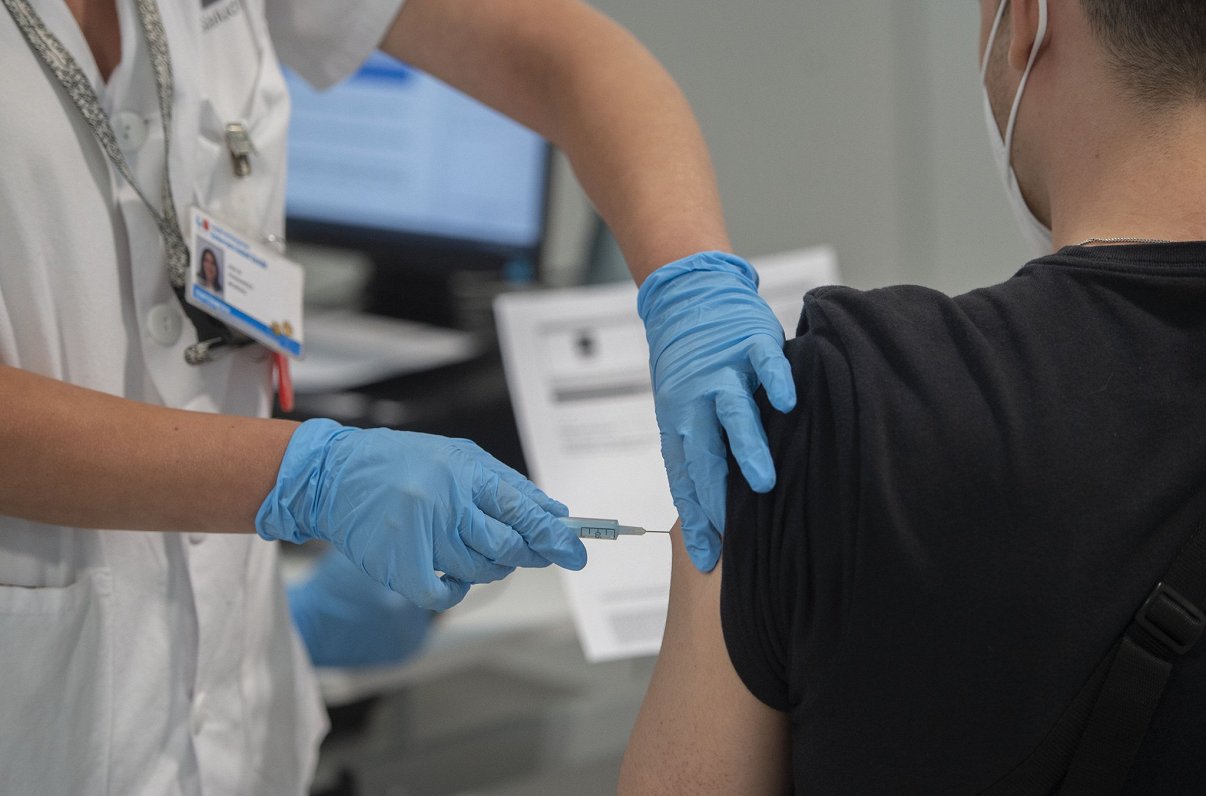Below you will find LSM's best effort at a summary of the rules, though they are rather complex and come with various exceptions and get-out clauses. In addition to the rules applying to the civil service and public employees, one of the more controversial areas is likely to concern the obligation of private businesses to make potentially complex legal calls regarding how much of an epidemiological threat unvaccinated individual employees might pose to public health.
"Vaccination against Covid-19 is the only way to actually fight the infection and return to normal life," the government insisted on July 14.
By October 1, in health care, long-term social care and social rehabilitation institutions and in the field of education, workers who are in direct contact with patients, clients, or children must present a Covid-19 certificate verifying that they have been vaccinated or that they have overcome a bout of the virus.
In the field of education, the requirement applies not only to teachers but to any other school staff who come into contact with pupils.
State services
Persons with a Covid-19 certificate on vaccination or having overcome the disease will be able to provide and receive services from state authorities. The exception is where failure to receive a service poses a risk to ensure fundamental human rights: for example, an unvaccinated person will also be able to obtain a passport at the Office of Citizenship and Migration Affairs.
The Covid-19 certificate can still be replaced by a negative Covid-19 test from 1 October to 31 December to ensure continuity of service. The exception shall not apply to areas of health and social care and education where the certificate is required from October 1.
Other areas
In private and public institutions, excluding education and health and social care, where vaccination is compulsory by requiring a Covid-19 certificate, employers should assess each worker on a case-by-case basis, taking into account the principles of proportionality, rule of law, and equality.
The employer can require a Covid-19 certificate from 1 October in the following cases:
- if the employee is in direct contact with customers during his or her duties, when in physical contact or is in a long-term position closer than two meters from the client, or if several employees carry out their duties in long-term mutual contact, entering physical contact or being within two meters;
- in situations where the worker is more likely to become infected by direct contact and contact with a large number of persons whose health status is unknown;
- if onsite duties of the employee are critical to the public or ensuring the continuity of the activity of the establishment;
- if the employee needs a Covid-19 certificate in accordance with the requirements of regulatory enactments.
The employer shall also have the right to provide for exceptions where persons can continue to carry out their work duties with a certificate attesting to negative results of the Covid-19 test if the provision of the specific action and service does not entail an increased risk of infection.
The employer may transfer the employee to another post if the employee does not have a certificate. Employees can also be suspended for a period of three months, and if the employee has not been vaccinated during that time, they will be allowed to be dismissed.
Judicial officials
Judicial officials, as well as officials belonging to the judicial system, must have a Covid-19 certificate attesting to the fact of vaccination or having had the disease, or a negative result of the test.
Persons who do not have a Covid-19 certificate or a negative result of the test carried out shall be allowed to work on-site only if their service cannot be provided remotely or if the provision of the service poses a risk to fundamental human rights.
National Armed Forces
The Commander of the National Armed Forces (NBS), taking into account the specific nature of the tasks of the military in ensuring State protection, has the right to require NBS soldiers and civilian personnel to hold a Covid-19 certificate attesting the fact of vaccination or having had the disease.
If a certificate is not present without a justifiable objective reason, the Minister for Defense or his authorized commander may terminate the professional service contract with a soldier before its contracted time period expires.
Additional info
The State Council for Immunization emphasizes that the vaccines used in Latvia have no medical, clinical, or scientific reasons why a person would not be able to take them, except for the possibility of an allergic reaction - anaphylaxis. Therefore, there are no theoretical or practical situations in which a person could not be vaccinated against Covid-19 for medical or health reasons.
Here you can read the full text of the draft law [in Latvian] "Amendments to the Covid-19 Infection Spread Management Law".



























